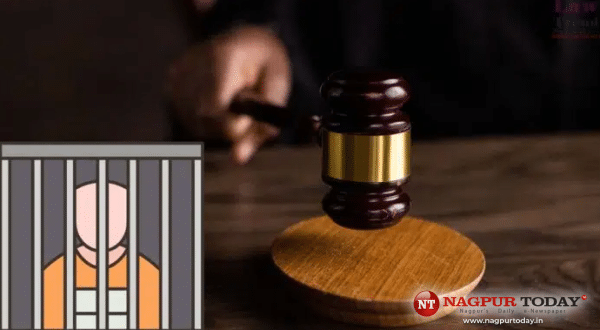Nagpur: The Nagpur bench of Bombay High Court has ruled that emergency parole provided for Covid-19 pandemic cannot be granted following amendments in rules by the Maharashtra Government. The High Court ruling came while dismissing a murder convict’s case.
The Government substituted Rule 19 of the ‘Maharashtra Prisons (Mumbai Furlough and Parole) Rules, 1959,’ through a February 10 notification where amendments were made in the definition of ‘emergency parole’ after the pandemic effect subsided.
A division bench comprising Justice Vinay Deshpande and Justice Amit Borkar said, “The reading of newly introduced Rule 19(1) enables the jail authorities to release prisoners on emergency parole only on the grounds of death and marriage. It also has a provision to release them on regular parole for serious illness, delivery of wife and natural calamities. The government’s intention is clear that the prisoner is not entitled to be released on emergency parole on the grounds of Covid-19 pandemic”.
A murder convict — Sachin Gabrel — undergoing life imprisonment in Central Prison in Nagpur, moved the High Court challenging cancellation of his emergency parole. He was initially released on emergency parole on July 14, 2021, but an offence was registered against him on August 6, 2021, at Jaripatka Police Station. Subsequently, the State Home Department cancelled his parole, which he challenged in the High Court.
His contentions were strongly opposed by public prosecutor M K Pathan stating that he could not claim to be released on parole as a right as introduction of Rule 19(1)(C) was in pursuance of the Supreme Court’s directives. He pointed out that the government had substituted the condition in the Rule 19 through February 10 notification.
Pointing out that the government had introduced conditional legislation on May 8, 2021, as per the SC’s directives in view of the emergency situation created by the pandemic, the judges said it was done to reduce overcrowding of jails and to avoid spread of the deadly virus.
The court said, “The subordinate legislation which creates privilege in favour of the prisoner is based on the condition that there is a subsisting rule which confers power on the prison authorities to release them. Undisputedly, the privilege conferred by May 8, 2021, notification is no longer in existence. As a result, the provision that confers privilege on a prisoner in the form of emergency parole has been extinguished.”
On careful reading of Rule 19(1)(C), which was in existence prior to its substitution, the bench said there was no right, much less a vested right. “In absence of such a right, the prisoner is not entitled to claim release on emergency parole after the Rule which created privilege in his favour is no longer in existence. In the absence of conferment of any vested right, the petitioner is not entitled to the benefit of erstwhile Rule 19(1)(C),” the HC ruled, while dismissing the petition.
While explaining the definition of parole, the High Court bench said it is a well-settled principle of law that its grant is not a matter of right. “Parole can be granted only when there is a specific reason available to the prisoner, unlike furlough, where limited right accrues in favour of the petitioner by the passage of his term of imprisonment. The privilege of parole is not available to the prisoner unless expressly conferred on it by the rules,” the judges said.

















